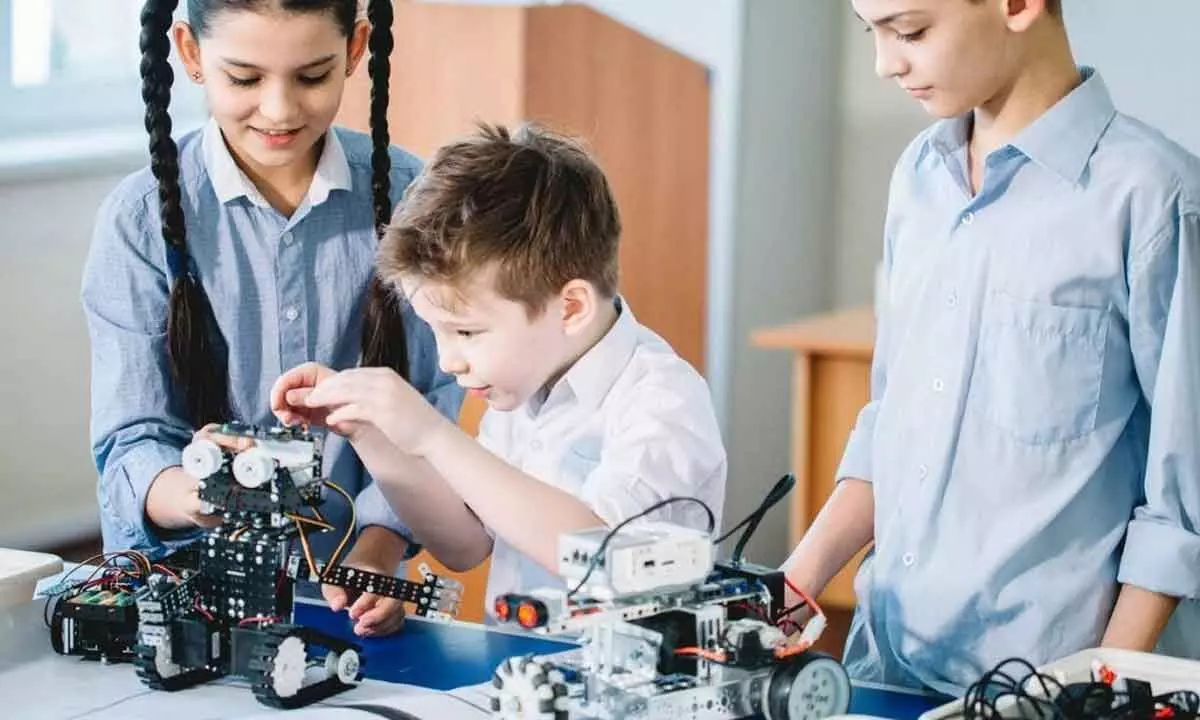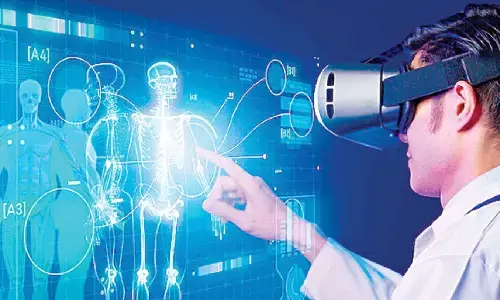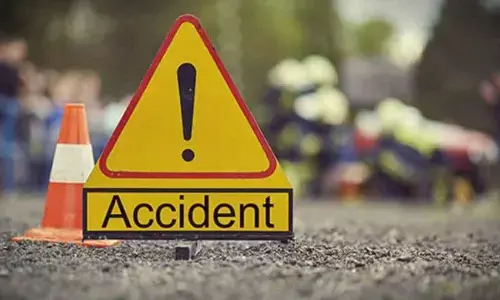Real-world application of STEM education

How theory translates into innovation
STEM education translates knowledge into practical solutions that address real-world challenges. By promoting a diverse and inclusive STEM landscape through effective policies, requisite infrastructure, well-trained educators, and innovative approaches, we can unlock the full potential of STEM education. This will lead to a future with more innovation, a stronger and more diverse pool of leaders, and a more successful and sustainable future for all
STEM education is revolutionising the way students learn and preparing them for the challenges of the modern era. It’s not just about mastering science, technology, engineering, and maths (STEM) subjects individually but rather an essential 21st century skillset that extends to design thinking, innovation, prototyping, coding, mechatronics, drone technology and all the latest emerging technologies like AR,VR and AI. It lays the groundwork for various disciplines such as scientific laws, mathematical concepts and other fundamental principles that form the basis of innovation. STEM education primarily focuses on hands-on and problem-based learning methodologies. This helps students to deal with real-world situations and apply their learning to create, innovate and discover. These valuable skills not only enhance academic performance but also lay a strong foundation for students’ future career paths.
STEM education offers numerous benefits, including the enhancement of critical thinking, motivation for experimentation, development of teamwork skills, increased curiosity, and enhanced problem-solving abilities. Recognising the significance of STEM education, the Government of India is actively promoting it through initiatives like the Atal Innovation Mission (AIM) and the National Initiative for Developing and Harnessing Innovations (NIDHI). These programs provide funding, mentorship, and infrastructure support to schools and institutions, encouraging them to develop innovative learning environments and nurture a culture of entrepreneurship among students.
STEM education’s impact is evident in groundbreaking advancements across various fields. In medicine, biomedical engineering has revolutionised healthcare with innovations like robotic surgery, artificial limbs, and personalised medicine.
In energy, renewable energy technologies like solar panels and wind turbines are crucial for fighting climate change and ensuring a sustainable future. Advancements in space exploration, including rocket science and robotics, are fuelling our exploration of the cosmos, leading to discoveries that improve our understanding of the universe.
Environmental monitoring benefits from sensors and data analysis tools developed through STEM, allowing us to track pollution levels, monitor environmental changes, and manage natural resources effectively.
Finally, precision agriculture techniques using drones and data analysis are optimising crop yields and promoting sustainable farming practices. Through such data and examples, we come to recognise the immense potential of STEM education in driving innovation and progress.
However, creating a truly diverse and inclusive environment requires addressing some key challenges. Infrastructure development and technology integration are crucial. Schools need well-equipped STEM labs and access to modern tools like VR, AR, robotics, and coding platforms to adapt to theincreasing advancements in technology within the education sector. These resources facilitate effective hands-on learning and bridge the digital divide, ensuring equitable access for all students.
Practical application is key to cementing theoretical knowledge and this includes leveraging immersive technologies like Augmented Reality(AR) and Virtual Reality (VR). These technologies provide students with interactive and immersive environments where they can explore concepts in a three-dimensional space. By integrating these resources at the school level, educators can empower students to become active creators and innovators in a rapidly changing world. Relating concepts to real-life applications such as why aeroplanes are white in colour for heat reflection or why acids in oranges are edible but not the acids in batteries, is necessary for conceptual understanding and to bridge the gap between theory and practical knowledge.
Another critical challenge to be addressed is gender disparity in STEM fields.
Encouraging more girls to pursue these careers requires targeted programs and mentorship initiatives. Existing programs like Vigyan Jyoti and other corporate collaborations with organisations offer good exposure to students.These initiatives can be further strengthened by providing scholarships, mentorship opportunities, and interactive outreach programs specifically designed to inspire girls and address their unique needs in STEM fields.
In essence, STEM education translates knowledge into practical solutions that address real-world challenges. By promoting a diverse and inclusive STEM landscape through effective policies, requisite infrastructure, well-trained educators, and innovative approaches, we can unlock the full potential of STEM education. This will lead to a future with more innovation, a stronger and more diverse pool of leaders, and a more successful and sustainable future for all.
(The author is Founder and Mentor, Nischal’s Smart Learning Solutions)










